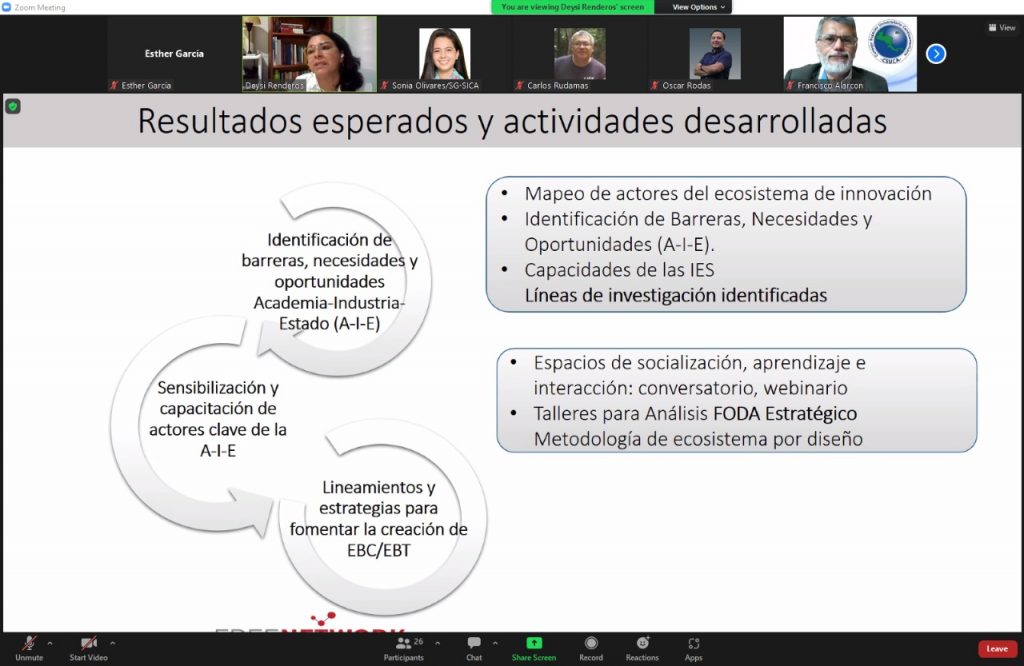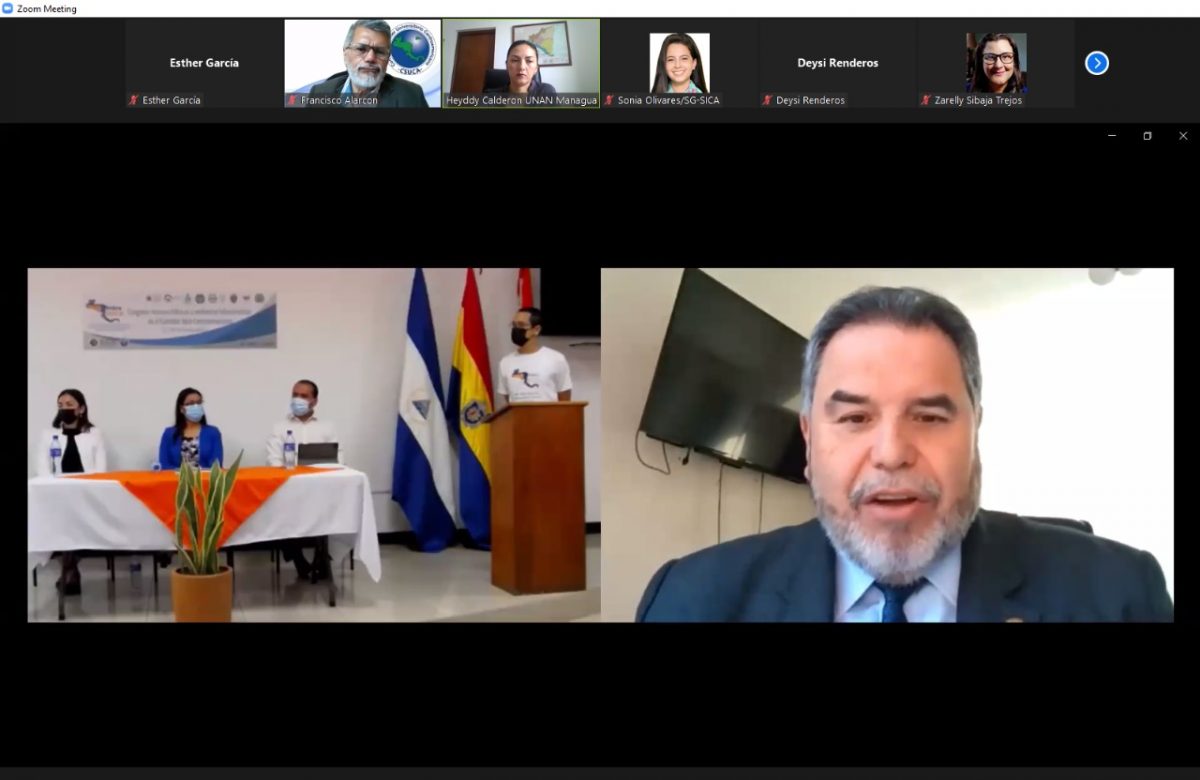Central America May 24, 2022
Through the efforts of 9 scientific research networks, results, lessons learned and medium and long-term goals are presented today, as part of the closing of the regional project ?Strengthening science and innovation policy capacities in member countries of the Central American Integration System (SICA)?, which was executed through the General Secretariat of SICA, together with the Central American Higher University Council (CSUCA) and the International Development Research Center (IDRC) with headquarters in Canada, the National Secretariat of Science and Technology (SENACYT) of Guatemala, as Permanent Secretariat of the Commission for the Scientific and Technological Development of Central America and Panama (CTCAP) and the National Secretariat of Science, Technology and Innovation of Panama (SENACYT ).
To start the activity, Mr. Carlos Alvarado Cerezo, Secretary General of CSUCA expressed ?We see reflected in the results of this project, the lessons learned and the recommendations for the future, with the networks that have been formed and strengthened from this project. through research contributions in Central America and the Caribbean?.
For his part, Mr. Jorge Cabrera, representing the General Secretariat of SICA, stated, “We must follow up on these networks, in order to generate an impact on our societies. The project has been very successful, in the area of research it has been a very important project for the SICA region?
While Mr. Carlos Maynor Salinas, representing CTCAP, reflected, "It was a project that took place in extraordinary conditions, so I have no choice but to congratulate you for the work you have done and motivate you to continue strengthening the networks."
It is important to highlight that in principle the regional project was going to contribute to the development of 5 research projects, but due to the demand, it was possible to support the creation and strengthening of 9 scientific research networks, being the following:
- REBAMAR, with the purpose of evaluating marine plastic litter in Central America through the formation of a regional research network.
- RED-CIED, formation of the Central American and Caribbean Network for Research in Economics and Development.
- HidroREDCA, creation of a hydrogeological research network to strengthen the preparation and resilience to extreme weather events of the populations of the Central American Dry Corridor.
- RT-LAMP, interdisciplinary network for capacity building in Central American countries for the development of a diagnostic test for proactive screening in sources of SARS-CoV-2 virus infection using technology.
- RECIEC, Central American network of research in critical extension.
- RedCMD, Central American network for the management of epidemiological data.
- RCN, network of researchers for the development of natural sciences.
- Red Free Network, articulation of actors from the academy-industry-state for the generation of economic reactivation initiatives post COVID-19 pandemic and strengthening of the innovation ecosystem in Central America.
- RIESI, regional academic network for the support of higher educational inclusion for people with disabilities and social disadvantage in the countries of the Central American and Caribbean region.
It should be noted that, in May of this year, the participating institutions, led by the CSUCA, presented a new initiative to IDRC, with the purpose of continuing to strengthen the contributions of scientific research generated from the member countries and universities of the region. Central America and the Caribbean for the next 5 years.



